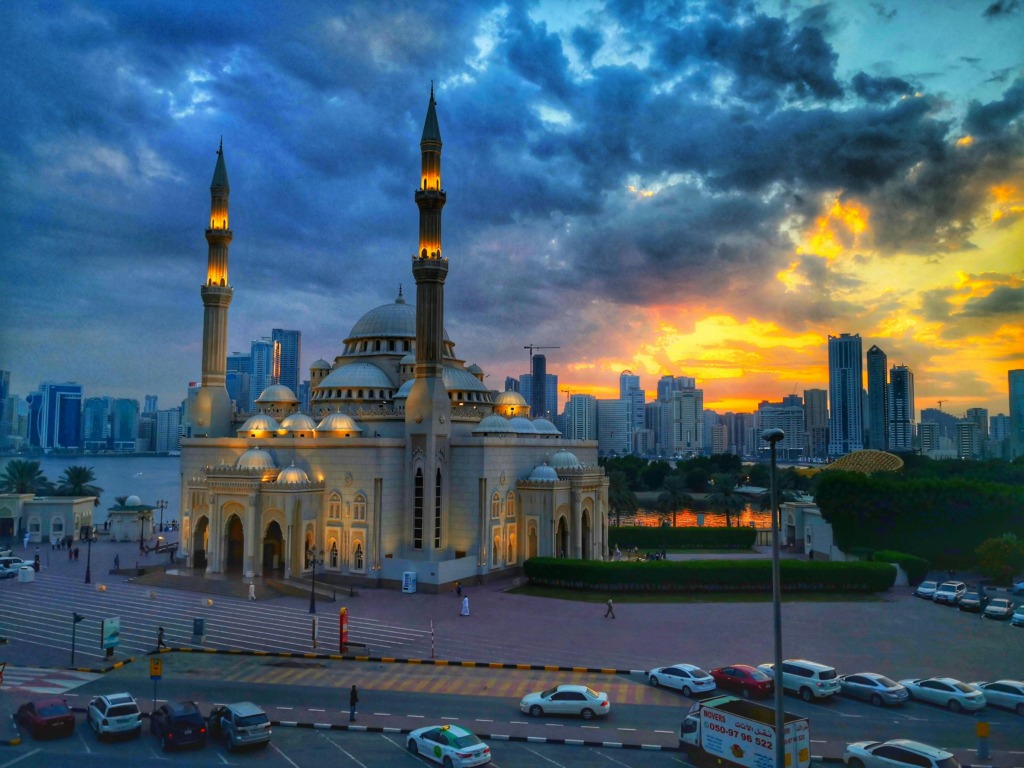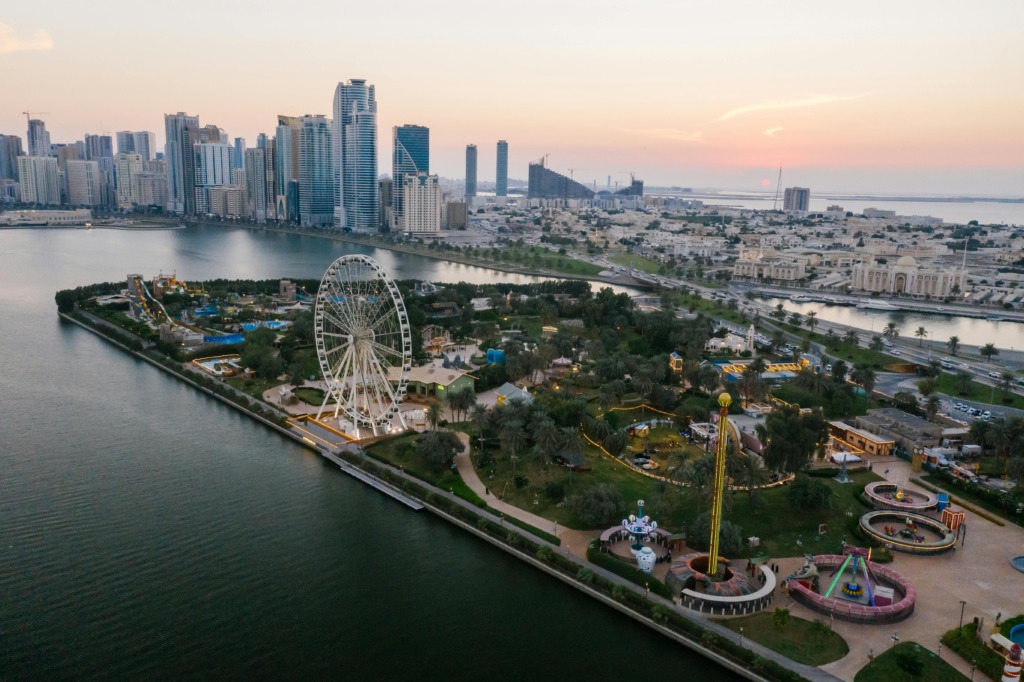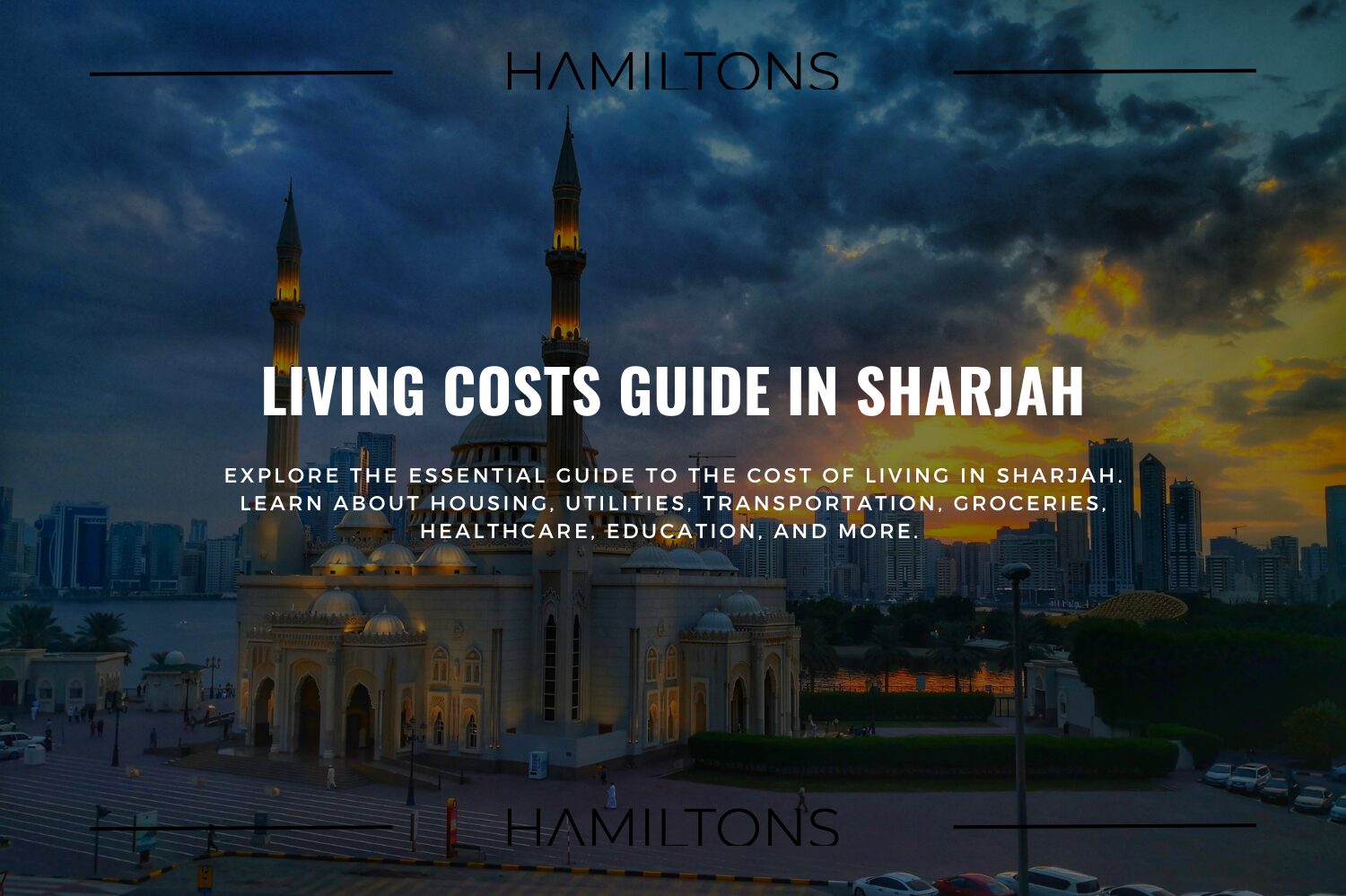Sharjah, one of the seven emirates that make up the United Arab Emirates (UAE), is known for its rich cultural heritage and affordable living compared to its neighboring emirate, Dubai.
Understanding the living costs in Sharjah is essential for anyone considering moving to or living in this vibrant city. This article provides a comprehensive guide to the various expenses you might encounter in Sharjah, helping you plan your budget effectively.

Housing Costs in Sharjah
Renting Apartments
Renting an apartment is one of the most significant expenses for residents. In Sharjah, the rental prices are generally more affordable compared to Dubai. The price range for different types of apartments is as follows:
- Studio apartments: AED 15,000 to AED 25,000 per year
- 1-bedroom apartments: AED 20,000 to AED 35,000 per year
- 2-bedroom apartments: AED 30,000 to AED 50,000 per year
Buying Property
For those considering a long-term stay, buying property might be a viable option. The real estate market in Sharjah offers a variety of options, from affordable apartments to luxurious villas. The cost per square meter can vary widely depending on the location and type of property.
Utilities and Internet
Average Cost of Utilities
Utilities in Sharjah, including electricity, water, and cooling, can cost between AED 500 to AED 1,000 per month for an average apartment. The cost can fluctuate based on the size of the apartment and usage.
Internet and Mobile Plans
High-speed internet and mobile plans are readily available in Sharjah. Monthly internet packages typically range from AED 300 to AED 500, while mobile plans vary based on data and call requirements.
Transportation Expenses
Public Transportation
Public transportation in Sharjah is convenient and affordable. The bus network is extensive, and fares are typically AED 2 to AED 5 per trip. Taxis are also a common mode of transport, with fares starting at AED 12. The metro system is currently under development, promising to enhance connectivity in the future.
Owning a Car
Owning a car involves several costs, including fuel, insurance, and maintenance. Fuel prices are relatively low, with petrol costing about AED 2.70 per liter. Car insurance can range from AED 1,500 to AED 3,000 annually, depending on the vehicle and coverage. Regular maintenance is essential and can cost between AED 500 to AED 1,000 per service.
Grocery and Food Costs
Average Grocery Expenses
Grocery costs in Sharjah are reasonable, with an average monthly spend of AED 1,000 to AED 2,000 for a small family. This can vary based on dietary preferences and shopping habits.
Dining Out
Eating out in Sharjah offers a range of options, from budget-friendly local eateries to high-end international restaurants. A meal at a local restaurant might cost between AED 15 to AED 30, while dining at an upscale restaurant can range from AED 100 to AED 300 per person.
Healthcare Expenses
Public Healthcare System
Sharjah has a well-established public healthcare system that offers affordable medical services to residents. The cost of public healthcare is subsidized for UAE nationals, while expatriates may need to pay a nominal fee for services.
Private Healthcare Options
Private healthcare in Sharjah is of high quality, with numerous hospitals and clinics offering a range of services. Consultation fees can range from AED 200 to AED 600, depending on the specialty and facility.
Health Insurance Costs
Health insurance is mandatory for residents, and premiums can vary widely based on the coverage. Basic plans can start from AED 700 annually, while comprehensive plans may cost upwards of AED 5,000 per year.
Education and Schooling
Public vs. Private Schools
Education is a significant expense for families in Sharjah. While public schools are free for UAE nationals, expatriates usually opt for private schools. Tuition fees for private schools can range from AED 10,000 to AED 50,000 per year, depending on the curriculum and grade level.
University Tuition Fees
Higher education is also a consideration, with universities in Sharjah offering various programs. Tuition fees can range from AED 20,000 to AED 60,000 annually, depending on the course and institution.
Leisure and Entertainment

Costs of Common Recreational Activities
Leisure activities in Sharjah are diverse, catering to different interests. A cinema ticket typically costs around AED 35, while entry fees to museums and parks range from AED 10 to AED 30. Water sports and other outdoor activities can cost between AED 100 to AED 300.
Membership Fees for Clubs and Gyms
Fitness enthusiasts can join gyms and sports clubs, with membership fees ranging from AED 200 to AED 500 per month. Some exclusive clubs might charge higher membership rates, offering additional facilities and services.
Shopping and Personal Care
Clothing and Accessories
Shopping for clothes and accessories in Sharjah can be both affordable and luxurious, depending on where you shop. Local markets offer budget-friendly options, while malls feature international brands with higher price tags.
Beauty and Personal Care Services
Personal care services, including haircuts, manicures, and spa treatments, are readily available. A basic haircut might cost between AED 30 to AED 100, while spa treatments can range from AED 200 to AED 1,000, depending on the service.
Miscellaneous Expenses
Pet Care
For pet owners, expenses include food, grooming, and veterinary services. Monthly costs can range from AED 200 to AED 500, depending on the type and size of the pet.
Household Help
Many families in Sharjah hire household help, with salaries typically ranging from AED 1,500 to AED 3,000 per month, depending on the duties and working hours.
Cost of Living Comparison with Other UAE Cities
Sharjah vs. Dubai
Compared to Dubai, Sharjah offers more affordable housing and living costs. Rent, in particular, is significantly lower in Sharjah, making it an attractive option for those working in Dubai but looking for budget-friendly accommodation.
Sharjah vs. Abu Dhabi
While Abu Dhabi also has higher living costs than Sharjah, the difference is less pronounced than with Dubai. Housing and utilities are more affordable in Sharjah, but some expatriates might prefer the lifestyle and opportunities available in Abu Dhabi.
Saving Tips for Living in Sharjah
Budgeting Strategies
Creating a budget and sticking to it is crucial for managing living costs. Track your expenses, prioritize essential spending, and set aside savings each month.
Discount Opportunities
Take advantage of discount cards, loyalty programs, and promotional offers available at various stores and restaurants. These can help reduce your overall expenses significantly.
Impact of Lifestyle on Living Costs
Expat vs. Local Lifestyle
Expatriates and locals may have different lifestyles, which can impact living costs. Expats might spend more on international schools, imported goods, and dining out, while locals may benefit from subsidies and more affordable options.
Family Size and Expenses
The size of your family significantly affects your living costs. Larger families will naturally have higher expenses for housing, food, education, and healthcare. It’s essential to factor in these costs when planning your budget.
Future Trends in Sharjah’s Cost of Living
Real Estate Market Predictions
The real estate market in Sharjah is expected to continue growing, with new developments and infrastructure projects enhancing the city’s appeal. This growth might lead to a gradual increase in property prices and rental rates.
Economic Developments
Sharjah’s economy is diversifying, with investments in various sectors such as tourism, education, and healthcare. These developments are likely to create more job opportunities and could influence living costs positively by boosting the overall economic health of the emirate.
In summary, living in Sharjah offers a balance of affordability and quality of life. The cost of living is generally lower than in Dubai and Abu Dhabi, making it an attractive option for families and individuals looking to manage their expenses effectively. By understanding the various costs associated with housing, utilities, transportation, and other living expenses, residents can better plan their budgets and enjoy all that Sharjah has to offer.
FAQs
1. What is the average rent for a 2-bedroom apartment in Sharjah? The average rent for a 2-bedroom apartment in Sharjah ranges from AED 30,000 to AED 50,000 per year, depending on the location and amenities.
2. How much does it cost to own a car in Sharjah? The cost of owning a car in Sharjah includes fuel (approximately AED 2.70 per liter), insurance (AED 1,500 to AED 3,000 annually), and maintenance (AED 500 to AED 1,000 per service).
3. Are groceries more expensive in Sharjah compared to other cities? Groceries in Sharjah are reasonably priced, with average monthly expenses ranging from AED 1,000 to AED 2,000 for a small family, which is comparable to other cities in the UAE.
4. What are the costs of private schooling in Sharjah? Private school tuition fees in Sharjah range from AED 10,000 to AED 50,000 per year, depending on the curriculum and grade level.
5. How can one save money while living in Sharjah? To save money in Sharjah, consider creating a budget, taking advantage of discount opportunities, and exploring more affordable housing options. Additionally, using public transportation and shopping at local markets can help reduce expenses.



